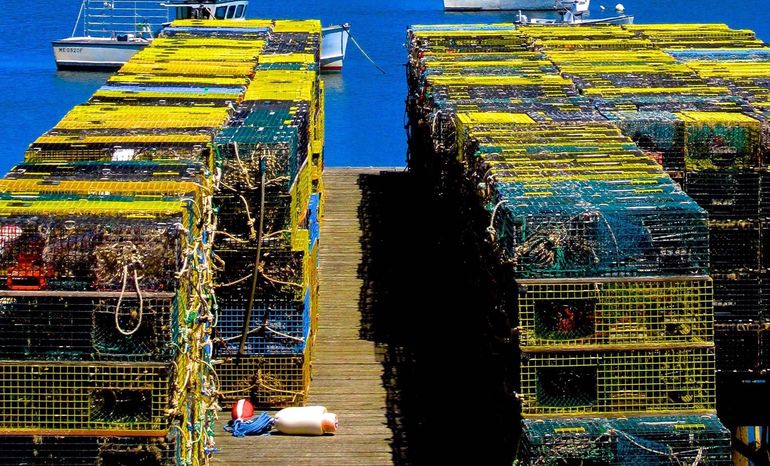Maine leaders call on Seafood Watch to reverse lobster ‘avoid’ designation
 File photo / Laurie Schreiber
Gov. Janet Mills urged Secretary of Commerce Gina Raimondo to allow more time for the lobster industry to weigh in on protections for right whales.
File photo / Laurie Schreiber
Gov. Janet Mills urged Secretary of Commerce Gina Raimondo to allow more time for the lobster industry to weigh in on protections for right whales.
Maine leaders are calling on a watchdog organization to reverse its designation of lobster as a seafood that consumers should avoid, or to provide evidence to back its claims.
U.S. Sens. Angus King, I-Maine, and Susan Collins, R-Maine, Gov. Janet Mills and U.S. Reps. Chellie Pingree, D-1st District, and Jared Golden, D-2nd District, are calling on the Monterey Bay Aquarium's Seafood Watch to immediately reverse the controversial listing of Maine lobster on the watchdog’s seafood “Red List” and to remedy what the political leaders said was significant harm the designation has caused the industry.
On Tuesday, Seafood Watch updated its rating for lobster caught in the Gulf of Maine and Georges Bank from a “good alternative” to a seafood consumers should “avoid.”
Seafood Watch is owned and operated by the Monterey Bay Aquarium in Monterey, Calif. Its latest rating report covered numerous fisheries along the U.S. coasts.
In a letter to the aquarium’s board, led by King, the Maine leaders said there were significant factual omissions of Seafood Watch’s lobster report.
The letter criticized the organization for holding the Maine lobster industry to an impossible “guilty until proven innocent” standard, and called for answers on several questions.
While the designation was assigned based on the potential danger North Atlantic right whales face in getting entangled in fishing gear, there has not been a right whale entanglement attributed to Maine lobster gear in 18 years, Mills has said.
“The recent decision by Monterey Bay Aquarium's Seafood Watch to ‘Red List’ Maine lobster with scant evidence of impacts on right whales is a reckless piece of activism that will inflict substantial negative real-world consequences on an important and iconic industry in Maine,” the letter says.
The letter says the designation “will impact the livelihoods of thousands of people in Maine.”
The letter says there hasn’t been a right whale entanglement with Maine lobster gear since 2004, and right whale deaths or serious injury have never been attributed to Maine lobster gear.
The majority of right whale deaths since 2017 have been attributed to vessel strikes in Canada. Twenty-three of the 30 whales that died between 2017-19 were found in Canadian waters or were a result of entanglement in Canadian fishing gear.
The Maine lobster industry has taken a number of measures, including eliminating rope that floats upward in the water column and is considered a type of rope likely to entangle whales. The industry also removed more than 30,000 miles of line from the water.
“By ignoring these clear facts, Seafood Watch isn’t encouraging safe fishing; instead, you are damaging the reputation of your certification process by misleading consumers,” the letter says.
The letter asks Seafood Watch to answer a number of questions, including:
• How does harming an already challenged lobstering community with little to no evidence of right whale entanglements promote the safety of right whales?
• Seafood Watch listed Maine lobster as a “good alternative” in 2014. Since then, the fishery has implemented more changes to protect right whales. Why does the new report fail to take these actions into consideration?
• What steps is Seafood Watch prepared to take to remedy the significant harm they have already inflicted on the Maine lobster industry?














0 Comments